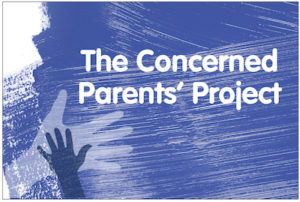 Are you concerned about your child’s emotional well-being and/or behaviors, worried that he or she isn’t doing well at home, in school, or at life, and bewildered when it comes to understanding what the help available really means?
Are you concerned about your child’s emotional well-being and/or behaviors, worried that he or she isn’t doing well at home, in school, or at life, and bewildered when it comes to understanding what the help available really means?
If so, you are obliged to embark on a journey of self-education. This isn’t a task that you signed up for when you became a parent and it isn’t something that will be easy to fit into your busy, maybe tumultuous life. But for your sake, your child’s sake, and the sake of everyone in your family, it is a necessary, vital journey.
To help you on your journey, I’m providing 31 questions, one a day for the month of March, whose answers matter. To answer some of them, you will need to reflect; to answer others, you will need to have conversations with the people in your life, including your child; to answer others, you will need to read and learn. Some answers will lead you to the brink of making difficult changes: then you will need to find the courage to make them. I wish the road were simpler, but it isn’t. It absolutely isn’t as simple as taking a pill or giving your child a pill.
This journey will require your engagement, your surrender to the fact that perfect answers aren’t available, and your ability to tolerate confusion, what may prove to be rising anger at the mental health system, and feelings of hopelessness, desperation, and maybe guilt. I recognize that it is much easier for me to provide you with good questions than it is for you to arrive at good answers. But embracing this task and embarking on this journey may lead you to the best answers available.
It may be the case that you are not concerned about your child at this split second. Maybe he or she is doing beautifully. I would suggest that you still arm yourself with answers to the questions I’m providing, as in this way you will be prepared for the challenges that may possibly be coming, like school difficulties or a melancholic period, and challenges that are certainly coming, like your child’s adolescence. Educate yourself now, before difficulties arise and before bewilderment sets in.
Each day this month I’ll post one question. When I do, the link in the below list will go live. At the end of the month, this post will provide you with links to the complete list of questions. I hope you will use this list as an ongoing resource that you refer back to as needed. This initiative is part of our Concerned Parents’ Project: stay tuned for more on that.
To get in touch or to share your feedback, please email us.
Essential Questions for Concerned Parents
- What’s going on?
- Is there a problem?
- Has my child always been like this?
- Am I being pressured into seeing problems?
- How might the problem be conceptualized?
- How serious is the problem?
- What is my experience of my child?
- What do I want for my child?
- Have there been any big (or small) changes recently?
- Is my child under stress?
- Is my family under stress?
- Has my child been abused or traumatized?
- Is there someone mean in my child’s life?
- Who has the problem?
- If someone else has the problem, what will I do?
- What does my child say?
- What do other people say?
- Is my child’s behavior genuinely worrisome?
- Do I feel kindly toward my child?
- Am I quick to accept labels for myself?
- Has my child had a full medical workup recently?
- What sort of help am I looking for?
- What do I make of the expertise of experts?
- Who has a vested interest in my child’s disorder?
- What is the rationale for labeling my child with a mental disorder?
- What is the rationale for prescribing my child powerful chemicals?
- What other avenues might I try?
- Is my child actually getting any better?
- If my child is getting worse, what will I do?
- What about me?
- What should I be doing?
*****















Fine idea. I wonder what the next stage of this project might be. I have just had a glimpse, but I am interested based on your earlier writings for MIA.
Question 5 asks how the problem might be “conceptualized.” That’s a graduate school word. I don’t know what is your target audience, but my guess is that that word would be off-putting to many parents.
Elise Bon-Rudin
Previous Graduate School Participant
Report comment
Generally, I think this is a pretty good idea. I can support it. My comment would be to plan a re-write of the questions next year. Give the current set of questions a year, and as many people as you can get to use them, and see what’s what next year. I suspect there will be BIG changes in the next year.
And GOOD LUCK with the whole endeavor!
Report comment